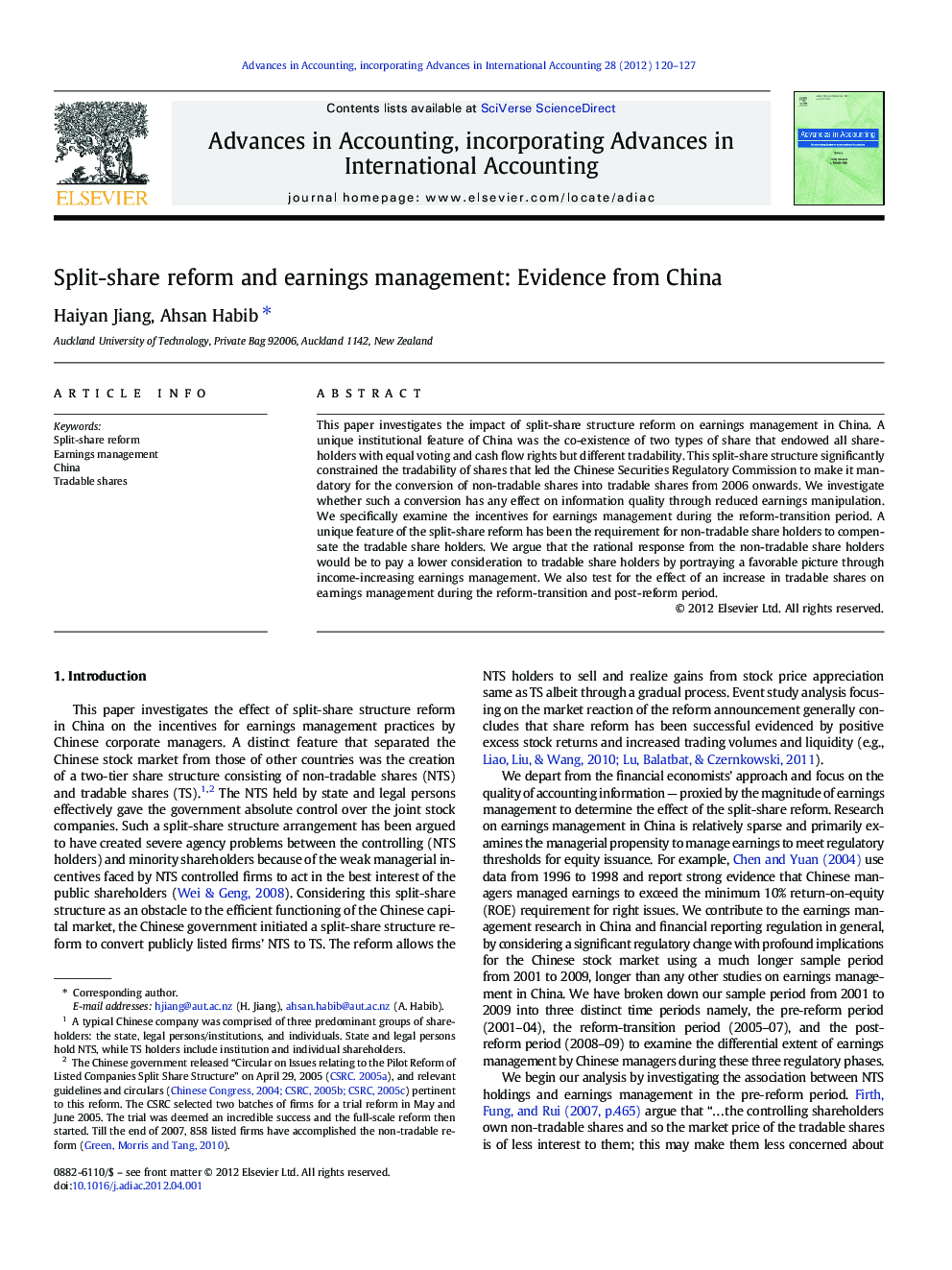| Article ID | Journal | Published Year | Pages | File Type |
|---|---|---|---|---|
| 7340741 | Advances in Accounting | 2012 | 8 Pages |
Abstract
This paper investigates the impact of split-share structure reform on earnings management in China. A unique institutional feature of China was the co-existence of two types of share that endowed all shareholders with equal voting and cash flow rights but different tradability. This split-share structure significantly constrained the tradability of shares that led the Chinese Securities Regulatory Commission to make it mandatory for the conversion of non-tradable shares into tradable shares from 2006 onwards. We investigate whether such a conversion has any effect on information quality through reduced earnings manipulation. We specifically examine the incentives for earnings management during the reform-transition period. A unique feature of the split-share reform has been the requirement for non-tradable share holders to compensate the tradable share holders. We argue that the rational response from the non-tradable share holders would be to pay a lower consideration to tradable share holders by portraying a favorable picture through income-increasing earnings management. We also test for the effect of an increase in tradable shares on earnings management during the reform-transition and post-reform period.
Keywords
Related Topics
Social Sciences and Humanities
Business, Management and Accounting
Accounting
Authors
Haiyan Jiang, Ahsan Habib,
